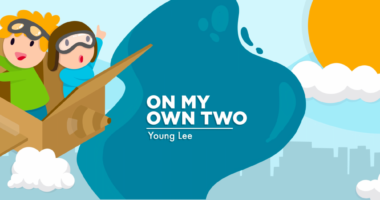Accessible travel is important and should mean more than a ramp
An inaccurate short-term rental listing spurs thoughts about disability education

There are many things we in the Charcot-Marie-Tooth (CMT) community mourn. Among them are old passions, activities we used to love, and dreams we might’ve realized had CMT symptoms not gotten in the way. But in speaking with other CMTers, one unfulfilled desire I often hear about is travel.
A few weeks ago, I called up Bernadette Scarduzio, a friend and CMT advocate, to chat about this. And when I spoke with her, she brought up short-term rentals — an industry made popular by companies such as Airbnb and Vrbo — and how inaccessible they can be to disabled folks.
Honestly, until our conversation, the accessibility of short-term rentals wasn’t an area I’d thought much about. While someone invariably suggests we rent out one big short-term rental space whenever I travel with friends these days, I tend to prefer the predictability of hotels.
And hotels have to be compliant with the Americans with Disabilities Act; it’s ambiguous whether other housing does and may vary case by case.
However, I can’t deny that the short-term rental industry has changed the way many travel. And I’m realizing that, partly because it’s largely unregulated, the industry leaves many disabled folks behind.
In our conversation, Scarduzio brought up an incident from a couple of years ago to highlight some of the difficulties she experienced when she and her friends planned a trip to a large short-term rental in Connecticut. She was excited about the getaway, which was an opportunity to celebrate and reconnect with her circle of friends. And though she was a wheelchair user — the only one in her group — she figured she’d still be able to manage because the property host indicated to them that the place should be accessible.
Only when Scarduzio and her friends got there did they realize, to their dismay, just how wrong that was.
The driveway was all pebbles. Her wheelchair barely fit through the door frames. And the bathroom was in the middle of a hall that was too narrow for her to navigate easily.
“Until I was actually there, there was no way for me to fully understand how inaccessible it was,” Scarduzio said. “My anxiety was high; I didn’t feel comfortable. So I left early. And I said, ‘I’m never putting myself through [anything like] this again.’”
Scarduzio says her negative experience wasn’t because the rental host had bad intentions. But she thinks the situation highlights how many able-bodied folks find it difficult to recognize what’s accessible and what’s not.
Scarduzio believes this truth emphasizes the need for education and advocacy. “[For many of us], accessibility is not just having a bathroom on the first floor or having a ramp,” Scarduzio said.
Ultimately, the accessibility issues at many short-term rental spaces are just one of many such problems today. Scarduzio believes those episodes are like society telling those of us in the disability community, “Sorry, but these experiences aren’t for you.” And that’s sad.
It’s disheartening to see people excited for certain experiences when we know they aren’t created with disabled folks in mind. And it’s particularly frustrating because often, with just a little more effort, it’s indeed possible to make such things accessible.
We see better examples of accommodations with mail-in and curbside voting. We see this exemplified in the many street corners with ramps. Accessible options are developing in video games and gaming hardware. And it should be possible in the short-term rental industry, too. Or at least the listings should be more accurate.
If we can spread awareness, educate others, and advocate for change, perhaps we can bring down many systems that contribute to making travel inaccessible.
Doing so would have a profound impact on the lives of disabled folks. After all, travel allows us to connect with others and learn from people with different backgrounds. It’s a way for many to relax and prevent burnout. And travel can help stave off social isolation, which can abound in disability communities.
Ultimately, we should try to make everything a bit more accessible when possible, so everyone — able-bodied or not — can live fuller and richer lives.
Note: Charcot-Marie-Tooth News is strictly a news and information website about the disease. It does not provide medical advice, diagnosis, or treatment. This content is not intended to be a substitute for professional medical advice, diagnosis, or treatment. Always seek the advice of your physician or other qualified health provider with any questions you may have regarding a medical condition. Never disregard professional medical advice or delay in seeking it because of something you have read on this website. The opinions expressed in this column are not those of Charcot-Marie-Tooth News or its parent company, Bionews Services, and are intended to spark discussion about issues pertaining to Charcot-Marie-Tooth.








David Flake, N. Little Rock, AR
Nice article on the issue of the need for travel accessibility. A company both Bernadette and I are involved with called Becoming rentABLE has been pushing this issue for more than two years and making good headway in the short-term rental and travel industries. Consumers can use the website www.becomingrentable.com to search for truly accessible short-term rental properties, and property owners can find a lot of valuable educational pieces on the website as well as get their accessible property reviewed and listed. The website is FREE to use. I hope this information is of interest to your readers.